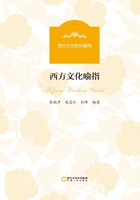
153.钉在颈手枷架上
[词语]to nail to the pillory
to put in the pillory
to set in the pillory
[含义]受到羞辱;遭人嘲笑;钉在耻辱柱上
[趣释]【物事喻指】颈手枷(pillory)是古欧洲盛行的一种木制刑具:木板上有三个孔,罪犯将头和双手伸入枷内,便被紧紧夹在其中。犯人被钉上颈手枷刑具,拖去游街示众后固定在一个架子上,任人唾骂羞辱。19世纪前的欧洲,凡犯诽谤罪的人,皆须受此刑罚。传说英国18世纪作家丹尼尔·笛福(Daniel Defoe)因为讽刺时政被捕入狱,遭监禁半年。他被监禁时带着颈手枷示众三次。人们用“处在枷刑中”(to be in the pillory)喻指惹众人嘲笑、成为笑柄。pillory也指带有颈手枷的固定架子,俗称“枷架”。人们用“钉在颈手枷架上”(to nail the pillory)来喻指受到羞辱、遭人嘲笑、钉在耻辱柱上。卡尔·马克思(Karl Marx)在《法兰西内战》(The Civil War in France)一文中就引用这条成语。
[运用]Working men's Paris, with its Commune, will be for ever celebrated as the glorious harbinger of new society… Its exterminators history has already nailed to that eternal pillory from which all the prayers of their priests will not avail to redeem them. 工人的巴黎及其公社将永远作为新社会的光辉先驱受人敬仰……那些杀害它的刽子手已经被历史永远钉在耻辱柱上,不论他们的教士们怎样祷告也不能把他们解脱。(马克思语)
The world mocks at it and sometimes puts one in the pillory for it. 世人对它大加嘲笑,有时甚至还会由于它使人被钉在颈手枷架上。